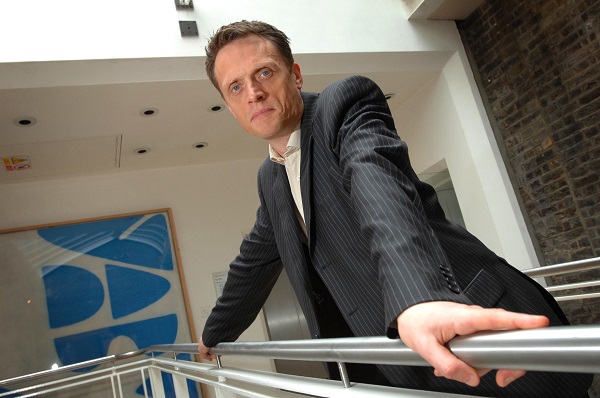Being able to understand what the economy is will help you assess crucial decisions put forward by those in power.

“Economy” can be a scary and complex word few of us want to discuss. When the economy is talked about by politicians or on the news, it’s laced with jargon about “quantitative easing” and “stock market bubbles”, making it hard to understand how it relates to our lives.
Perhaps, therefore, it isn’t surprising that following the UK Brexit vote 45 percent of British people surveyed admitted they did not understand the consequences Brexit would have on their own economy.
But we should be surprised. As the discussions surrounding Brexit demonstrate, the economy and the decisions politicians make regarding it have a profound impact on the lives of those living and working in the UK, from the quality of food people eat to the services they benefit from.
It’s important, therefore, for people to understand what the economy is – to be better able to judge the actions their politicians are taking and to help them make better informed individual economic decisions.
There are additional benefits too. Meaningful efforts to engage the public can reassure citizens that their leaders are listening to them, thereby increasing trust in politicians. And through the sharing of citizens’ lived experiences and perspectives, experts from institutions like the HM Treasury or Bank of England can gain valuable insight into their values and opinions. There is much evidence to suggest that a diversity of perspectives improves the effectiveness of policy-making, as well as being fair.
More democratic economic processes can promote transparency and strengthen the legitimacy and credibility of economic institutions. However, despite the enormous potential democratising the economy has for strengthening and making our economic institutions more fair and inclusive, a large democratic deficit in economics continues to exist.
So what can be done to engage citizens in discussions about the economy?
Citizens’ Economic Council
The Citizens’ Economic Council, run by the Royal Society of Arts, is a two-year programme aiming to give citizens a say on UK economic policy and to demonstrate how citizens can increase their influence over the future of the national economy.
The council engaged 54 randomly selected citizenson a journey through national economic policy over five days in five months with officials and policymakers from the Bank of England, pension funds, business, Chambers of Commerce and economists.A variety of different activities were used to engage and empower those taking part. For example, participants were encouraged to “call out” and “jargon bust” any terminology that was unclear to them during the process. The frequency with which they did this clearly demonstrated the seemingly impenetrable barrier economic language poses to clarity about economics, and led the citizens to co-produce a “jargon buster”, which will be published online in the programme’s final series of resources.
For the programme to be as wide-reaching and inclusive as possible, RSA carried out other methods of engagement to complement the council. This included an Economic Inclusion Roadshow, running workshops across the UK, from Port Talbot in Wales, to London, to Clacton-on-sea, to bring in a wide variety of voices from those most left behind by economic policy. The Roadshow engaged with steelworkers, school students, care workers, ethnic minorities, LGBT people and disabled people.
The impact of the programme on the participants has been phenomenal. By asking a series of questions at the end of each session, we found that the percentage of people who felt they did not know how much influence they had over the economy decreased by over 50 percent.
The citizens also felt more connected to people in their society and community and felt more optimistic about the future. This effect is even starker if you look at the individual journeys of some of the participants. One participant has increased her pension contributions as a result of the council and is encouraging many of her colleagues to do the same, while another citizen joined a political party and is interested in standing as a local councillor.
It was clear from the programme that citizens felt empowered by participating and more able to influence the economy, particularly as a result of collaborating with policymakers. While the UK has been making some progress, as can be seen by the Bank of England’s Andy Haldane and his own roadshow to engage citizens across the country, more programmes such as the CEC are needed if we are to empower citizens and align their values with those of our economic institutions.
Going forward
Following the findings of the Citizens’ Economic Council, it is essential that the UK government review its current code for public engagement and participation, with an aim of introducing Citizens’ reference panels and juries as way of allowing citizens to give their views. This could be trialed for example by the Bank of England to deliberate key economic decisions with citizens, such as the setting of interest rates. The policy can then be broadened to other government departments on its success.
There are several other examples of citizen juries and similar programmes around the world which demonstrate the benefits of engaging citizens in deliberative democracy. Deliberation by citizens during the 2011 constitutional convention in Ireland, a programme of similar style to the Citizens’ Economic Council, crucially highlighted the views of Irish citizens and so forced the government to take their proposals seriously. As a result, the convention was crucial to bringing about a successful referendum on same-sex marriage, and the conventions also proposed economic and social rights for inclusion in Ireland’s constitution.
More boldly, since 1987 Porto Alegre, Brazil has undergone a process of participatory budgeting – the process of allocating public funds for citizens to deliberate over and decide how the money should be spent. This process was incredibly effective and led to a dramatic increase in sewer and water connections, an increase in the number of schools in the city, and a larger health and education budget. These are clear examples of why engaging citizens in political decision-making is an essential component of effective policy-making.
The success of these initiatives not only inspired the creation of the Citizens’ Economic Council, but similar citizen engagement initiatives have now been introduced in several countries around the world, all empowering citizens to have a greater say in the political decisions that affect them, including around their economy. It is clear that the thirst for greater democratic participation in all areas of government policy is increasing around the world. It’s about time our institutions adapted to meet this greater demand for citizen deliberation in democracies.
This article was originally posted on HuffPost as part of their new economy series.
Related articles
-
Tackling populism through practical inclusion
Megan Corton Scott
In the current populist era an active initiative such as the Citizen’s Economic Council is not only necessary, but a breath of fresh air argues Megan Corton Scott.
-
Democracy needs a clumsy solution
Matthew Taylor
To renew democracy, we need to think about how we can combine the strengths and overcome the weaknesses of direct, representative and participative methods.
-
Making economics inclusive, interesting and less dismal
Nick C Jones
Everyone has an interest in the success of the economy. But it’s not always easy for the public’s voice to be heard in the rough and tumble of economic debate. The question is why?



Be the first to write a comment
Comments
Please login to post a comment or reply
Don't have an account? Click here to register.